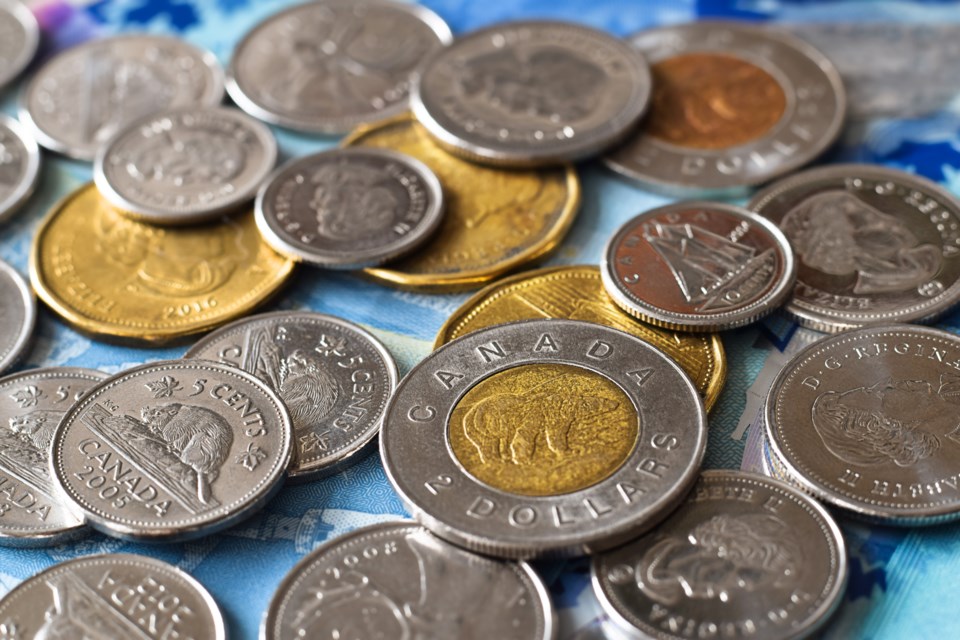B.C.’s New Democrat government was under immense pressure when it came to raising the minimum wage this week.
On the one side, union allies were pushing it to hold the line on a policy promise to link the minimum wage to the rate of inflation.
On the other, the business community was pleading with government to cap the rate hike during a skyrocketing year of inflation that threatens to decimate already-beleaguered businesses, especially in the restaurant sector.
The NDP, ultimately, let the rate rise the full amount. The minimum wage will jump 6.9 per cent in June, from $15.65 an hour to $16.75.
There are two main factors at play.
The first is pressure from other provinces. The NDP used to pride itself in leading Canada on the minimum wage. But Ontario beat it to the punch last week, announcing it had green-lit a 6.8 per cent to $16.55 an hour later this year.
In its press release, the Conservative Ontario government, who you might assume would be catering first to business interests, called the increase a “fair and balanced approach that means more money in their pockets so they can support their families and continuing building a stronger Ontario for all of us.”
Ontario also took a gleeful little shot at B.C. in its public materials.
“Ontario’s new minimum wage is the highest of any province in the country,” read its news release.
“For example, Quebec has a minimum wage of $14.25 an hour, British Columbia has a minimum wage of $15.65 an hour, and Alberta has a minimum wage of $15.00 an hour.”
B.C. did not want to be left behind, and with the most recent increase it is back out in front.
“BC is one of the most expensive provinces in Canada,” said BC Federation of Labour president Sussanne Skidmore. “So it makes sense that we continue to have the highest minimum wage of any province.”
The second factor is that this new premier is not nearly as concerned about appeasing the business community as the previous one.
John Horgan had at least been forced to court the business community in his attempt to move from opposition to government in the 2017 election. His finance minister, Carole James, tried to keep spending in check. His deputy minister, Don Wright, was a highly-regarded economist who worried about things like long-term fiscal growth for the province.
Those days, though, are over.
Premier David Eby has made it clear he intends to spend huge deficits to try and wrestle down social problems like housing, healthcare, climate change and affordability. Although he’s appointed many special advisors to give him advice in key areas, none focus on business or the economy.
Small businesses do have some valid points to make on the minimum wage.
They have in recent years absorbed new employer-paid sick days, a new employer health tax, increased WorkSafeBC premiums, rising property taxes or rent, higher carbon taxes and a new provincial holiday. Add to that the estimated $20,000 annual impact of the minimum wage increase on a business with 10 employees.
The restaurant sector, with its thin margins and labour challenges, is particularly hard-hit. There have been several high-profile closures in Victoria and Vancouver so far this year, and the Restaurant and Foodservices Association has warned more could be coming.
New Democrats don’t want to look like they are actively choosing to ignore the business community every year on the minimum wage — even if they are.
So Labour Minister Harry Bains suggested this week he’s crafting legislation to make it law to increase at the annual rate of inflation. Doing so would remove lobbying, pressure and unpredictability.
“We're considering that right now,” Bains said in an interview.
“We did say that the future increases to the minimum wage after we reach $15 an hour will be linked to the rate of inflation. So, last couple of ones we did it through OIC (cabinet orders). But we are looking at legislation going forward.”
The government is not stopping there.
Bains said he just recently received a report from the Fair Wages Commission on a pathway to the “living wage,” which is a totally different number advocates base on what it costs to afford rent, food and other items in a particular city.
The rate for Vancouver is $24.08 an hour — $7.33 more than the new minimum wage in June.
“That report has been handed to us now, and I’m just going over that and then we will make that public,” said Bains.
I asked the minister if the goal it to get B.C. to surpass the soon-to-be-legally-linked-to-inflation minimum wage, and closer to the living wage instead.
“We just wanted to see what are the possibilities to deal with the discrepancy between the minimum wage and the living wage,” said Bains.
“There was a time when the gap was narrowing. But when COVID hit us, that started to increase again. So we wanted to see if there is a way to deal with that.”
Rob Shaw has spent more than 15 years covering B.C. politics, now reporting for CHEK News and writing for Glacier Media. He is the co-author of the national bestselling book A Matter of Confidence, host of the weekly podcast Political Capital, and a regular guest on CBC Radio.




